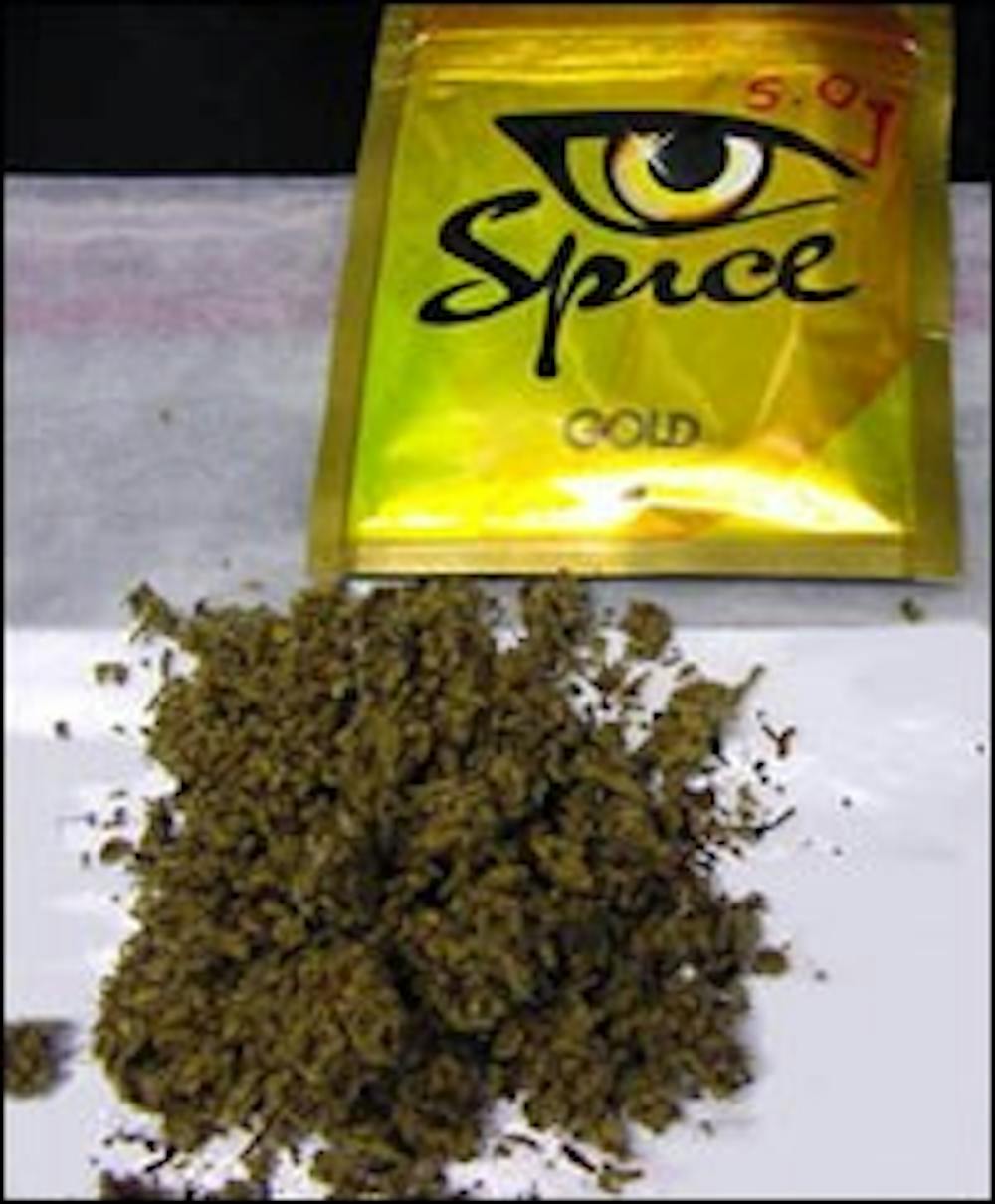Synthetic marijuana use is not widespread at UP, but is not unheard of
Spice, a legal substance to use in Oregon, is similar to marijuana, though it's effects on health are potentially dangerous.
By Elizabeth Vogel, Staff Writer -- vogel11@up.edu
Editor's Note:
The Beacon has a policy to generally avoid the use of anonymous sources because we believe that our readers are entitled to know the identities of sources of information so they can evaluate for themselves their credibility.
We may make exceptions when we believe the public benefit of publishing a story that could best be told only with an anonymous source or sources outweighs the value of the policy.
In this case, we decided that because the story of student use of synthetic marijuana illuminates a public health issue, we would grant anonymity and the pseudonym "Alex" to the student who spoke to us for this story. We do not make this exception lightly, but with the hope it will spark awareness and constructive discussion about the use of "spice."
Update: On the day The Beacon published the following story, the Oregon Board of Pharmacy adopted rules making it illegal to sell or possess synthetic marijuana (cannabis) in Oregon effective Oct. 15, 2010.
A University of Portland student, whom we'll call Alex for purposes of this article, gets high legally.
"The only reason I do it is to smoke with my friends who can't smoke marijuana," Alex said.
In an interview with The Beacon, he admitted to using synthetic marijuana, also known as Spice incense or K2.
Spice, which is marketed as "incense," is a legal blend of plants that is sprayed with chemicals that can produce the same high produced by THC in marijuana when smoked. Students might use it to avoid positive drug tests, but experts warn that it is a dangerous substance. While there is no evidence that use of Spice on campus is widespread, it's not unheard of.
Kristina Houck, a counselor at the Health Center, warns students against using this product. "There is a lot of risk in putting unknown, unpredictable and unregulated substances in your body," she said.
A newsletter from the Oregon Poison Center relays the same message: "The Oregon Poison Center and other poison centers have noted many patients who develop symptoms that bring them to the Emergency Department: Tachycardia Agitation, paranoia, hypertension and mydriasis."
However, it stipulates that the evidence is inconclusive.
"It remains unclear if these side effects are due to another drug that is added to these products, or if this is simply the effect of an overdose of the known constituents," the article said. This uncertainty is exactly what worries Houck. "Nobody knows exactly what it is. The precise make-up varies dramatically," she said. "To not know what you're putting in your body is dangerous."
Alex first tried Spice over the summer when a friend introduced him to it.
"This summer my friend was on probation and was tested. So during the testing period, he just smoked Spice," Alex said.
Alex understands the risk, but says he has never had a problem with the product himself.
"It's a random mix of herbs and plants, so I guess if you're sensitive to anything you could have an allergic reaction," Alex said.
Alex said that Spice costs around $45 for three grams. It's sold at head shops and some convenience stores.
Spice is legal in Oregon, but is banned in 12 other states, such as Georgia and Kentucky. There has been discussion of an Oregon ban.
"My understanding is that they are working on legislation to make it not legal," Houck said.
Although Spice is currently legal in Oregon, that does not mean that the University will allow use of the products on campus.
"It violates the spirit of the drug policy," said Natalie Shank, the assistant director of the Office of Residence Life and student conduct coordinator. "It has to do with harm to self, and it has to do with respect for self. It also has a community impact."
There is currently no specific reference to the use of legal synthetic narcotics in The University of Portland's drug policy, but Harold Burke-Sivers, director of Public Safety, hopes to help change that.
"The bottom line for me is that this stuff is dangerous. I plan on recommending that the University draft a policy similar to the weapons policy (where we ban weapons and simulated weapons) that would impose a ban on synthetic narcotics," he said in an e-mail.
Shank said that the University might take action under the current policy if a student were found in possession of Spice on campus.
"I might charge it if I think it is a possible violation. That way we can have a transparent discussion with the person being charged," she said.
According to Shank, it's the same approach they would use if a student was found using another legal product to get high, such as aerosol or glue. Like Burke-Sivers, she can foresee the policy changing in the future, although for now she is not greatly concerned.
"I haven't heard a lot of buzz. It's something we need to think about. We'll probably add something to the policy in the near future," she said.
Burke-Sivers confirmed, "The Public Safety department has received no reports of synthetic marijuana use on campus."








